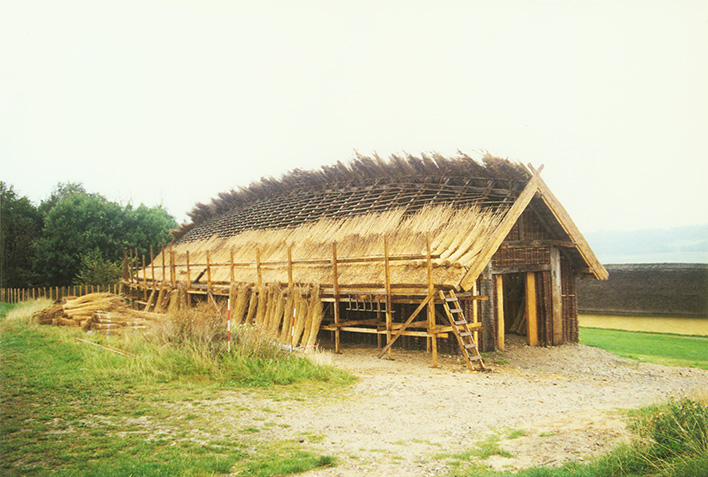In the US, we have lived in a period of relative law and order, where it is possible to live safely and securely in a solitary house on a farm in the countryside. It is hard to imagine the brutal reality of living in a world without the safety and security of Law and Order.
I find it interesting that you say this. I personally feel totally unsecure in this modern world, with the government/corporation’s dream of an all-seeing eye more realized than ever before. I don’t feel afraid of other ordinary people (strangers), but I do feel nervous when I see a cop (and feel relief when they can no longer see me).
Here on Salt Spring (a relatively small, rural community to be sure), we have a local tradition of picking up hitchhickers (passing them by is considered impolite), and I do this whenever I can (as a lone woman in a car, I pick up men and have never felt unsafe). No one here locks their doors, many don’t lock their cars in town, and some even leave their keys in the ignition (while their cars are unlocked, of course). In the middle of town! It’s sort of a local joke, but it makes the point that many here reject the culture of fear (fearing our fellow humans) that the dominant culture tries to promote. And crime on the island hardly exists, so while some do take advantage (a few petty theft crimes happen), this trust is hardly misplaced.
Of course, any community needs to protect each member’s safety and well-being, but I think that happens much better through social technologies and a culture of trust and openness (where everyone feels free and supported to speak up whenever they don’t feel comfortable, for example), than it does through “law and order” (the ever-present threat of violence provided by the state). Any women who works on domestic violence will attest to the fact that the police do a miserable job of protecting women from violence (and actually often commit the violence) - while any look at the riot cops at a non-violent protest shows how well the police do the job of protecting the interests of those in power.
I hope I haven’t diverged too far off topic, but I also wanted to say that I agree that we need to be very concerned with our communities safety during and after the collapse. But defending the community from harm stands as a very different issue from internal security, which would be solved by a variety of social technologies.
On a different note, I think I have somewhat of a different idea of the nature of rewilding havens than others - although I like the idea of having as many types of rewilding havens as possible. What I have been thinking of - what I would personally want to create - doesn’t consist of a sort of travelers’ rest stop provided by a “host”, but instead of creating a true rewilding community, where people could join and leave according to where their life takes them. In this situation, a “host” wouldn’t exist - there would only exist the community.
I feel that the tricky part comes with the issue of land ownership. Just when I think I fully understand the evilness of “private property”, I find yet another negative thing about it. In this case, it seriously complicates the whole dynamic of rewilding havens. The system requires regular payments (similar to a stickup by a highway robber, I feel) by land owners, in the form of taxes, insurance, and mortgage, which begs the question of how the community would pay for this?
And in general, the different status of “landowner” and “visitor” could create strange dynamics among members of the community, such as feelings of entitlement, issues of respect of the land, etc. Although I think the community could easily eliminate the problem of freeloaders, abusive members, etc by having clear guidelines for acceptable behavior, and requiring those who violate those guidelines to leave.
I feel that because some people have a much more fortunate financial situation than others (due to the unequal nature of civilization), providing land exists as one of many ways to contribute to the community, and while it is an essential contribution, it should not grant someone special status (except as a founding member of the community, helping to create its ideals and guidelines).
I think the more that the idea of “ownership” of the land is minimized, the healthier and less civilized the community will become. I know that if I bought land for a rewilding haven, I would not in any way want that to affect my relationships with the other members of the community. I especially wouldn’t want to become “above” others in a hierarchical sense, with my land ownership granting me special power to dictate things to the rest of the community (the definition of a dictator, I think). I also would not feel comfortable living in a community where that were the case. How this would be avoided seems a bit complicated, though. Private property rearing its ugly head again - I would love nothing more than to cut it off ;).
Jessica




 [/center]
[/center]